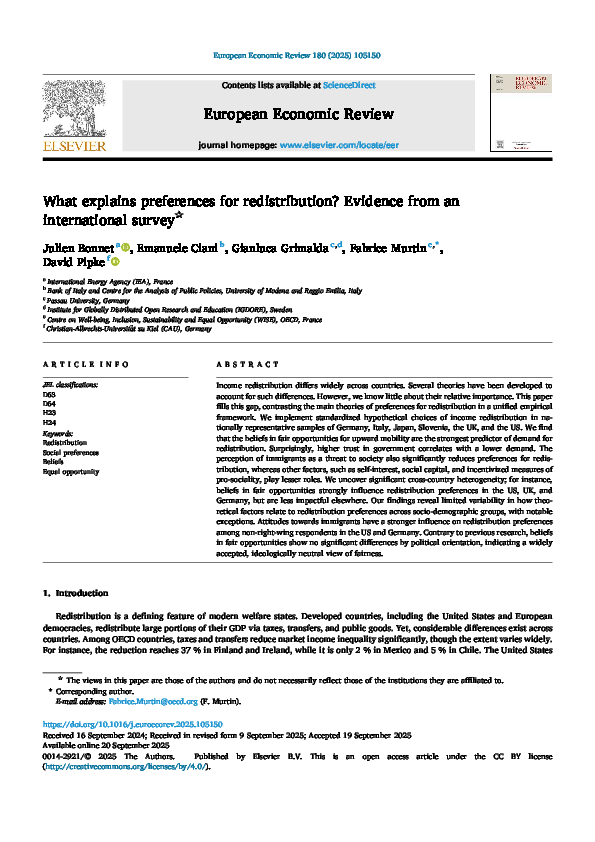Journal Article
What explains preferences for redistribution? Evidence from an international survey
Autoren
Erscheinungsdatum
DOI
10.1016/j.euroecorev.2025.105150
JEL Classification
Schlagworte
Geoökonomie
Europa
Deutschland
USA
Chancengleichheit
Income redistribution differs widely across countries. Several theories have been developed to account for such differences. However, we know little about their relative importance. This paper fills this gap, contrasting the main theories of preferences for redistribution in a unified empirical framework. We implement standardized hypothetical choices of income redistribution in nationally representative samples of Germany, Italy, Japan, Slovenia, the UK, and the US. We find that the beliefs in fair opportunities for upward mobility are the strongest predictor of demand for redistribution. Surprisingly, higher trust in government correlates with a lower demand. The perception of immigrants as a threat to society also significantly reduces preferences for redistribution, whereas other factors, such as self-interest, social capital, and incentivized measures of pro-sociality, play lesser roles. We uncover significant cross-country heterogeneity; for instance, beliefs in fair opportunities strongly influence redistribution preferences in the US, UK, and Germany, but are less impactful elsewhere. Our findings reveal limited variability in how theoretical factors relate to redistribution preferences across socio-demographic groups, with notable exceptions. Attitudes towards immigrants have a stronger influence on redistribution preferences among non-right-wing respondents in the US and Germany. Contrary to previous research, beliefs in fair opportunities show no significant differences by political orientation, indicating a widely accepted, ideologically neutral view of fairness.







